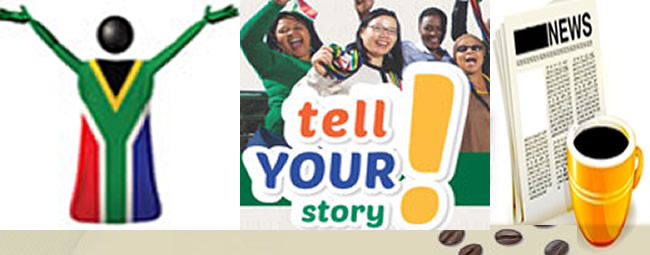30 Years of building our economy
The South African economy is today nearly triple the size it was when we embarked on our democratic journey. It is the result of 30 years of hard work and tough decisions taken amidst difficult challenges.

The South African economy is today nearly triple the size it was when we embarked on our democratic journey. It is the result of 30 years of hard work and tough decisions taken amidst difficult challenges.
There was a time when the story of Africa was told by voices outside the continent who looked at our continent through a tainted lens. However, this has changed and Africans are now proudly sharing our own stories of development and triumph.
Five months into 2024, and many a thing has happened, requiring us to sit down and catch our collective breath.
The South Africa we embrace today, where individuals are allowed to move freely, speak without fear and associate with whomever they want, would not be possible without the sacrifices of those who fought for our freedom. This year, as we commemorate 30 Years of Freedom and Democracy on the 27th of April, we will reflect on our journey thus far and our progress in advancing our democracy.
I believe that we can all agree that, at the end of the day, a decisive reduction in the unacceptably high level of unemployment is dependent on higher economic growth resulting in more jobs. This process is led by business investing in the private sector with resultant economic development and rising employment.
With the clock inching closer to Voting Day when citizens will mark their X next to the name of their preferred candidate in the 2024 general elections, it is important that we all go into the various voting booths across the country armed with all the relevant information to make an informed choice, writes Neo Semono.
The deployment of a contingent of the SA National Defence Force (SANDF) as part of the SADC Mission to the Democratic Republic of Congo (SAMIDRC) and the subsequent tragic deaths of Captain Simon Mkhulu Bobe and Lance Corporal Irven Thabang Semono have provided plenty of grist to the opinion mill.
Even if one does not usually pay attention on a daily basis to the ins and outs of government and the political landscape in the country; the flurry of activities within this domain over the past few weeks could hardly be missed.
Through social media apps, websites, and other digital tools, the internet gives us a lot of ways to connect with each other. This makes information easy to find.
It is often said that water is life, and this is indeed the case as no life can be sustained without water. However, very few people give a second thought about the infrastructure required to ensure clean, drinkable water.
By William Baloyi
A cornerstone of our democracy over the past 30 years has been the participation of citizens in key policies and decisions that our country embarks on. This is in line with the country’s founding principle of building a participatory democracy and listening to the views of our citizens.
The official launch of South Africa’s first shipment and preferential trading under the African Continental Free Trade Agreement (AfCFTA) on 31 January 2024, at the Port of Durban goes beyond a feather in the cap for trade and economic growth. It signals the unyielding African spirit which has prevailed against the injustices that plagued our continent, including colonialism and apartheid.
Thirty years on, the debate about the importance of social assistance rages on in the country. Very few people contextualise it for what it is and its importance in the lives of ordinary South Africans. It is disheartening that we have to still defend it despite the good results we keep getting for investing in the human capital of our country. I had thought the debate that by providing much needed assistance to poor households; we are creating dependency had long past, little did I know that this would come from sections unexpected and we must continue to fight for this right and never tire to explain it.
Investments in infrastructure made today are an investment in a nation’s future success. It enhances mobility and accessibility, facilitates enhanced trade, overall economic productivity and boosts a country’s wellbeing.
By Michael Currin
With the holiday period almost in full swing, many of us can’t wait to see the back of the office in exchange for time to unwind with family and friends, after all it has indeed been an exhausting year for most.
Following the record-breaking fourth Rugby World Cup title win by the Springboks, South Africa’s national men’s rugby team, President Cyril Ramaphosa declared 15 December 2023 a public holiday to celebrate the team’s momentous achievement. It is fitting that this celebratory holiday occurs during Reconciliation Month and a day before Reconciliation Day, which is dedicated to fostering reconciliation and strengthen unity in the country.
Local government is an important sphere of government and should be covered by fulltime beat reporters in newsrooms, writes Lakela Kaunda.
South Africa is poised to turn the corner in eradicating pit latrines in educational facilities before the UN-designated year of 2030, writes Angie Motshekga.